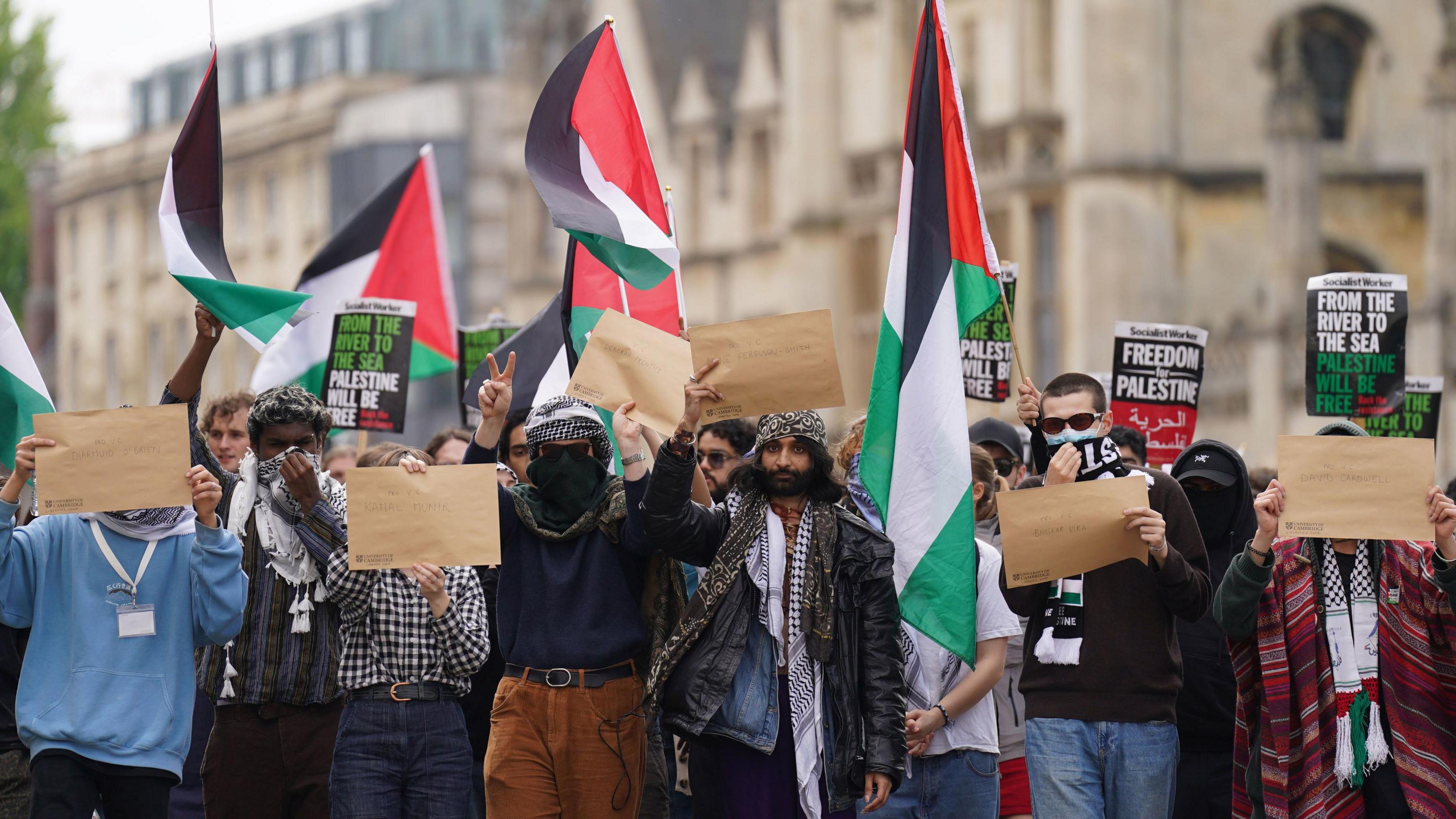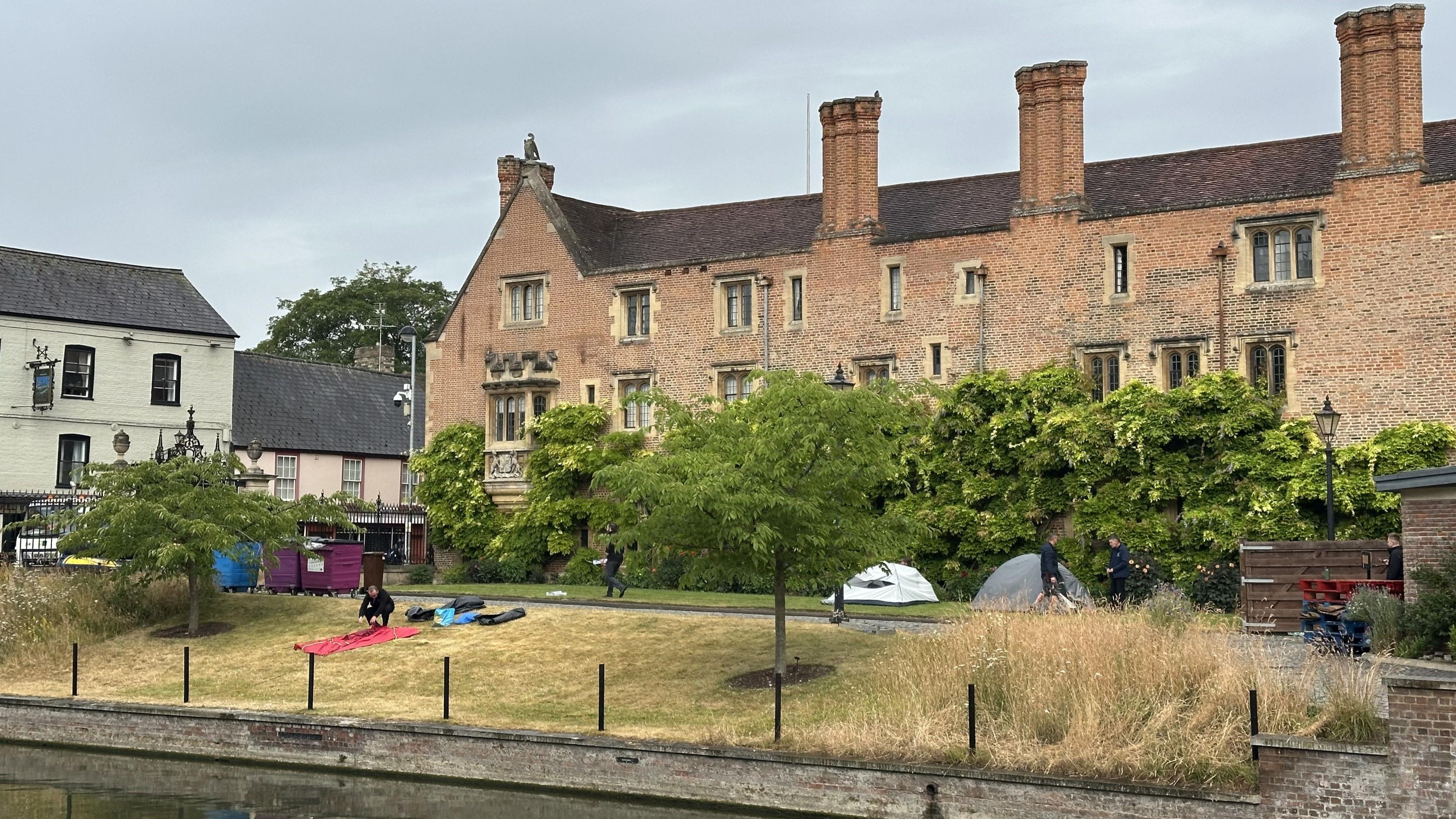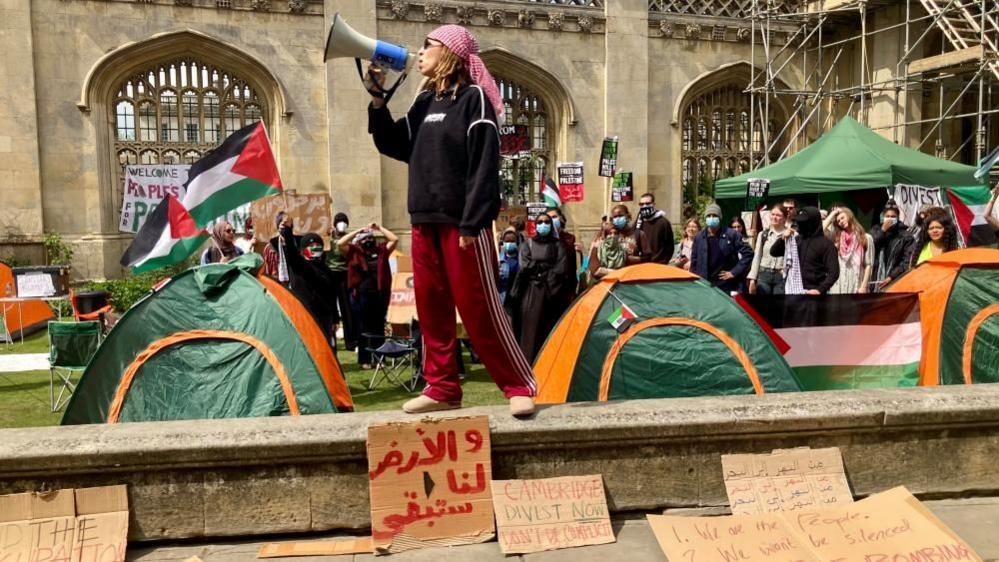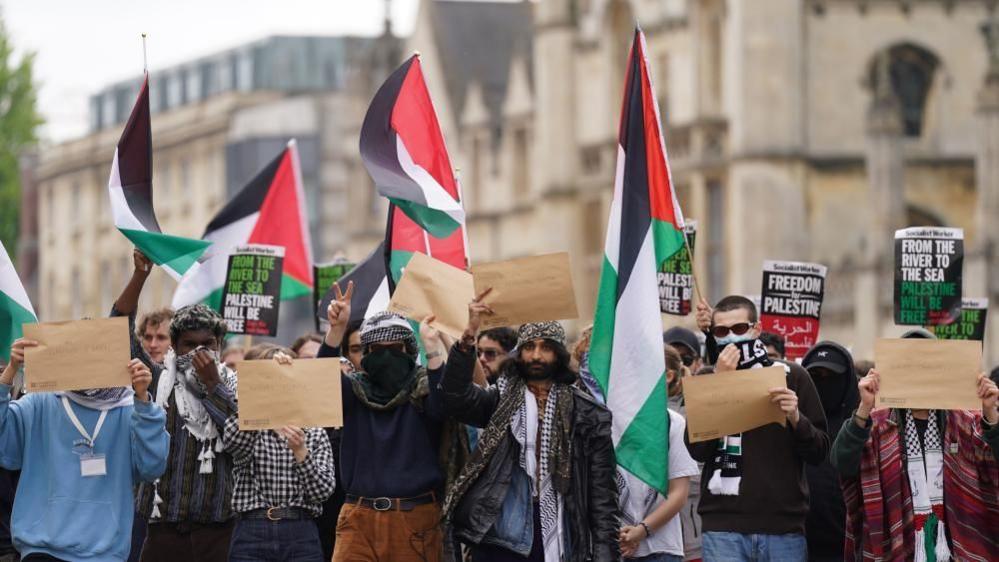Cambridge wins injunction to block campus protests

"Students have a right to protest. This institution has taught them to have conviction to hold any and all institutions to account in their wrongdoings," say sabbatical officers at the Cambridge students' union
- Published
The University of Cambridge has been granted a year-long injunction by a High Court judge to prevent pro-Palestine protests on parts of the campus.
It extended a previous injunction to stop protesters disrupting graduation ceremonies, which would have expired on 26 July.
Lawyers for the institution said protesters, believed to be associated with a group named Cambridge for Palestine, continued to pose a risk of disruption.
Grant Kynaston, for the The European Legal Support Centre (ELSC), argued: "These students and staff do not have the time to wait another academic year to speak out on this urgent issue."
On Wednesday, lawyers for the institution returned to court in London to ask for a further injunction, which was approved by Mr Justice Butcher.
It was opposed by the ELSC and human rights group Liberty.
Kester Lees KC, for the university, said in written submissions: "At no stage have the defendants or Cambridge for Palestine disavowed an intention to carry out further direct action on the land.
"Indeed, the statements made by Cambridge for Palestine on their social media accounts convey the message that they will continue to carry out direct action until their demands are met."
The injunction from March prevented protesters from entering, occupying or remaining on the land of Senate House, Senate House Yard, and the Old Schools.
It also covered Greenwich House.
Protesters were also prohibited from blocking others from accessing the sites and putting up structures like tents.
The new injunction will also cover Chestnut Tree Lawn, next to Senate House.
Mr Lees said since March there had been several incidents of direct action in and around Senate House and Senate House Yard.
It included a graduand making a speech about the university's "complicity" in the "genocide in Gaza" in May, before sitting down and refusing to leave.
'Human rights concerns'
In written submissions, Mr Kynaston said the injunction was "overbroad and ambiguous" and should not be imposed before graduations resumed in October.
He added it was evidence of the university's "increasingly severe approach to enforcing against student protesters", and that it raised "serious human rights concerns".
He said: "The injunction, although facially neutral, is clearly aimed at preventing campaigning and protesting regarding Palestine in particular.
"Nonetheless, this measure is sought at precisely the time when protests against those considered complicit in Israel's operations in the occupied Palestinian territory are most urgent."
The sabbatical officers of the Cambridge students' union also criticised the injunction bid as an "attempt to silence the voices of students".
They said: "Students have a right to protest. This institution has taught them to have conviction to hold any and all institutions to account in their wrongdoings.
"The university now has a responsibility to act accordingly."
Get in touch
Do you have a story suggestion for Cambridgeshire?
Follow Cambridgeshire news on BBC Sounds, Facebook, external, Instagram, external and X, external.
Related topics
- Published24 June

- Published6 June

- Published22 March

- Published4 March
